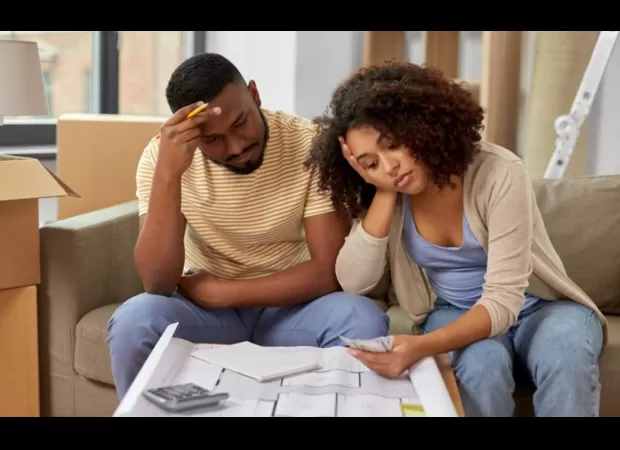Black homeowners could end up paying over $100,000 in additional expenses within a period of five years.
A new study found that homeowners typically spend around $18,000 each year on additional home costs, not including their mortgage.

Owning a home is often seen as a significant way for Black Americans to build wealth and achieve success. However, for many, the journey to homeownership is filled with both joy and challenges. Recent data has revealed that a staggering 85% of Black homeowners have experienced unexpected expenses associated with owning a home, such as maintenance, renovations, and taxes. This can be a major setback for individuals who have worked hard to achieve this milestone.
Matt Brannon, the author of "The True Cost of Homeownership 2024 Data," shared this eye-opening information with BLACK ENTERPRISE. According to the data, the average cost of homeownership for all Americans has increased by $499 from last year, with the total cost now sitting at $17,958. This is almost a 3% increase, which is just below the overall inflation rise of 3.4%, largely influenced by housing expenses.
Brannon's report also revealed that homeowners, including Black Americans, could potentially spend an extra $100,000 in just five to seven months beyond their mortgage payments. These additional costs can range from $5,300 for utilities to over $1,500 for homeowners' insurance. It is troubling to note that 27% of Black homeowners have had to dip into their retirement savings to cover these expenses, compared to 22% of all Americans. This is a significant concern as borrowing from retirement funds can have long-term consequences, hindering potential growth through investments.
One may wonder if building equity is worth it when compared to the expenses of owning a home. Brannon acknowledges that building equity is undoubtedly a benefit, but it is essential to consider the risks and potential downsides as well. He emphasizes the importance of not overextending one's budget to afford a home, as this can lead to financial troubles in the future. It is crucial to weigh the pros and cons of homeownership carefully.
Despite the benefits of homeownership, the data also revealed that 65% of Black homeowners have regrets about their home, and 55% have experienced some level of buyer's remorse. Additionally, 34% of Black homeowners believe that the cost of owning a home has negatively impacted their finances. This is concerning, as experts often tout homeownership as a way for Black Americans to build wealth and close the racial wealth gap.
Brannon acknowledges that these findings may seem contradictory, but he believes that this is because of the difference between general financial rules and individual circumstances. He emphasizes that homeownership can be a great opportunity for a solid financial future, but it can also be a significant burden if not approached carefully.
So, what steps can Black Americans take to make homeownership more affordable? Brannon suggests starting by considering a lower-priced home instead of stretching for a more expensive one. Just because you can get approved for a $300,000 mortgage doesn't mean you should buy a $300,000 house. It may be more beneficial to aim for a $250,000 home and use the leftover funds to cover unexpected housing costs.
Another way to make homeownership more affordable is by focusing on improving your credit score before applying for a mortgage. Even a small difference in interest rates can result in thousands of dollars in savings over the life of a loan. Empowering Black homeownership is crucial, and with careful planning and consideration, it can be a valuable asset for building wealth and achieving success.




